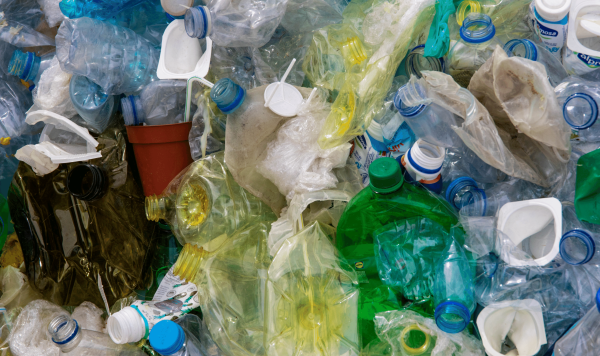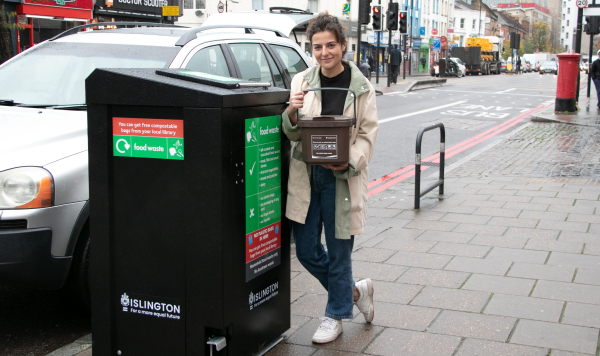Bananas in plastic bags, onions in plastic nets, and cucumbers wrapped in plastic; just three examples of unnecessary, environmentally damaging waste that North London Waste Authority (NLWA) is calling on the UK government to ban.
NLWA also renews its call for a 50p charge on single-use, plastic-lined coffee cups – 2.5 billion are used in the UK each year – to supercharge the switch to reusable cups.
These calls by NLWA follow the Government’s confirmation that it will ban plastic cutlery, plates and trays in cafés and restaurants. NLWA has asked for an end to these items for several years and welcomes the imminent ban. However, NLWA is concerned at the half-hearted implementation: these items will still be available at supermarkets and other shops. As a result, NLWA believes that the ‘ban’ will be difficult to enforce, will confuse consumers, and won’t end the proliferation of these entirely replaceable plastic items.
The Government is also not acting on the glut of flexible, single-use plastics that are used to package food, for instance, fresh fruit and vegetables in supermarkets. Research in 2022 for NLWA found that over 46 million pieces of plastic are thrown away each week by residents in just north London alone. Items such as milk bottles, fruit tubs, bathroom and cleaning products can be put out for plastic recycling collections in north London. However, low value or composite materials like chocolate wrappers and plastic film covering fresh produce have to be binned as they are difficult to recycle. These items accounted for 56% of pieces thrown away by participants in the study. Plastic over fruit and vegetables was the most counted item (17%), closely followed by snack bags, packets and wrappers (14%).
NLWA Chair, Cllr Clyde Loakes said, “It’s good news that some plastic cutlery, plates and trays will be banned but it is still a lacklustre effort by the Government. It needs to take a much more rigorous approach, one which includes weaning all types of businesses off plastic. Let’s hope that the Government’s consultation response, published this coming Saturday 14 January, will provide more leadership and action.
“So much more needs to be done – plastics may be convenient but the long-term impact on our environment is immense. Frankly, many plastic items don’t need to exist in the first place. For instance, why is there still plastic over fruit and vegetables when they could so easily be sold loose?”
NLWA also reiterated its call to the UK Government to implement Extended Producer Responsibility in 2023 as well as end delays to the Deposit Return Scheme. In the meantime, NLWA is innovating to ensure that more difficult-to-recycle plastic items can be recycled at its network of Reuse and Recycling Centres, such as expanded polystyrene in 2021 and hard plastics in a soon-to-be launched trial.



